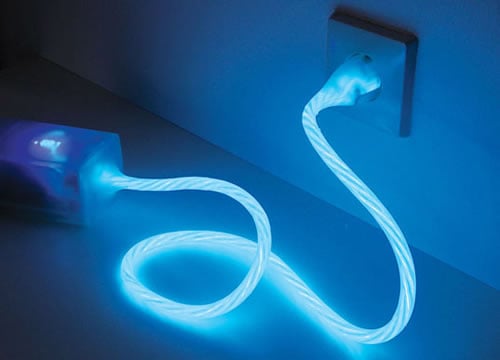I've bought/tried/sold loads of stuff over the past few years (for fun and not for monetary gain)
Haha.
No offence intended here at all, but this is real used car salesman patter lol
I've bought/tried/sold loads of stuff over the past few years (for fun and not for monetary gain)
Haha.
No offence intended here at all, but this is real used car salesman patter lol
may i ask do you have any opinion of the "test" demonstrated in this video :-
View: https://www.youtube.com/watch?v=sj2BqZST_7E&feature=emb_logo
Look at the thickness of a single strand bit of 5A fusewire.Unless you're replacing a Chinesium power lead containing 2 strands of copper, it'll make zero difference.
Don't be fooled into buying snake oil.
It's fine over the length of a fuse but the longer the wire the greater the resistance. If you ran that 5A fuse wire the length of 1 meter mains cable it'd handle around 0.1A before melting.Look at the thickness of a single strand bit of 5A fusewire.
2 strand wire might be all (or more than) you actually need.
I might try that to see. (I've done sillier things).It's fine over the length of a fuse but the longer the wire the greater the resistance. If you ran that 5A fuse wire the length of 1 meter mains cable it'd handle around 0.1A before melting.
The thickness of the wire determines how much current it can handle, not it's length. Increasing the length will increase the amount of energy lost as heat due to resistance, not reduce the current that can be fed down the wire.It's fine over the length of a fuse but the longer the wire the greater the resistance. If you ran that 5A fuse wire the length of 1 meter mains cable it'd handle around 0.1A before melting.
I think Mike would say it's the heat buildup that will do the melting.The thickness of the wire determines how much current it can handle, not it's length. Increasing the length will increase the amount of energy lost as heat due to resistance, not reduce the current that can be fed down the wire.
maybe if i win the euromillions (for a laugh) i could trial one on the end of a £300 amp to see if it works eh ?!
if you have a freind that has a big class a amp, let the freind use it for a week or two
A 5A fuse wire will blow at over 5A regardless of how long it is.
Of course it will work, unless it's faulty. It won't affect the sound of course.
A cable with an IEC plug won't fit any amplifier!not if the cable has an iec plug and the amplifier does not have the matching socket !
A cable with an IEC plug won't fit any amplifier!
I have my own views on this but can't write them here as I guarantee a ban will undoubtedly follow!
There are some on here who would say one of two things:I swapped out my existing power cables for some new ones. Didn't really notice a significant difference of any description with the new ones, but kept them in and got shot of the old ones.
The outgoing cables were a £150 Ross Andrews Powerkord 100 and a £400 JPS Labs "The Analog". They were replaced by some generic cables that cost about £15 all in for both.
There are some on here who would say one of two things:
1. Your system wasn't revealing enough to enable you to hear the difference these magic cables can bring.
2. They are of such similar construction that it would be difficult to hear a difference by an untrained ear.
Both of the above are absolute tosh as far as I'm concerned...
Nah, my money is on that both the statements are complete and utter tosh 🙂 As you've probably guessed I'm not a magic cable believer, but I have seen both statements used on here to justify support of magic cable theory.Haha, I bet!
Seeing as I'm using a pair of AVI ADM9 RSS Actives (affectionately known as Arses!) and several different sources - Cambridge Audio 752BD, Sony CDP-911E and so on, I think I'm good in the revealing gear dept. 😉
The other one would be possible, I'll grant you, but when you've got one cable coming in at £400-odd but with no difference to one 40 times cheaper, I'd feel a little short-changed I think...(I didn't pay £400 for it incidentally!).
Simply put, no - it makes no difference at all. Just make sure the power cable is properly constructed. For a clearer explanation, this is a nice, well written article.
.
Audiophile Power Cords - Do they really make a difference?
This article explores the age old question whether or not exotic power cords make a difference over the stock OEM cables supplied with your AV gear. Get the truth about power cords & cables here.www.audioholics.com
There are some on here who would say one of two things:
1. Your system wasn't revealing enough to enable you to hear the difference these magic cables can bring.
2. They are of such similar construction that it would be difficult to hear a difference by an untrained ear.
Both of the above are absolute tosh as far as I'm concerned...

